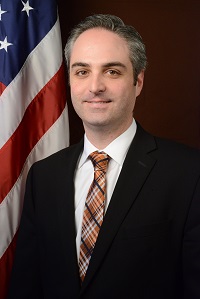 The prospect of a Constitutional Convention in Rhode Island is among the most prescient and hotly debated issues in Rhode Island politics today. Detractors of a Con-Con worry that the influence of monied special interests would essentially buy their way into a constitution that benefits those special interests. Supporters say that the convention would be a perfect opportunity to equalize, to some extent, the balance of power between our legislative and executive branches. These are certainly not the only pro/con arguments vis-a-vis a constitutional convention, and both sides have extremely valid points, but one radical idea that I think is missing from the discussion is the opportunity to create a unicameral legislature in Rhode Island.
The prospect of a Constitutional Convention in Rhode Island is among the most prescient and hotly debated issues in Rhode Island politics today. Detractors of a Con-Con worry that the influence of monied special interests would essentially buy their way into a constitution that benefits those special interests. Supporters say that the convention would be a perfect opportunity to equalize, to some extent, the balance of power between our legislative and executive branches. These are certainly not the only pro/con arguments vis-a-vis a constitutional convention, and both sides have extremely valid points, but one radical idea that I think is missing from the discussion is the opportunity to create a unicameral legislature in Rhode Island.
For many years, the R.I. House and Senate have suffered from a serious disconnect. While the two bodies may convene mere steps away from one another, there seems to be a gaping intellectual and ideological chasm between them. All too often, bills that have broad-based support in the House fail to even make their way out of committee on the Senate side, and those that do often face unwarranted scrutiny and kibbitzing on the Senate side. Let’s look at some examples.
- Last year, the issue of Same Sex Marriage was passed from the House floor 51-19; an overwhelming majority. When the bill reached the Senate, there was an effort to change the bill by inserting some outrageously discriminatory language concerning the “rights” of business owners to refuse their services to prospective same sex couples if they had a religious or moral compunction to do so. Most civil liberty watchdogs saw that these provisions fell dangerously close to “separate but equal,” and the bill eventually passed into law unadulterated due, in large part, to (GASP!) Senate Republicans.
- For the last four years, the issue of Payday Lending Reform has garnered a lot of attention. The coalition behind the reform legislation has worked tirelessly to inform the legislature on the predatory lending practices of these institutions, and last year had support from 52 of 75 Representatives and 28 of 38 Senators, but can’t seem to make it out of committee on either side. While this is not indicative of the disconnect between the two bodies, it is indicative of the influence of lobbies on our legislature. Despite the broad support, one man, former Speaker of the House and lobbyist for one of the two payday lenders operating in Rhode Island, Bill Murphy, seems to be single-handedly preventing the legislature from executing the people’s will.
- This week, the move to abolish the master lever, or single-party vote, passed through the House unanimously, 71-0. The bill has 18 cosponsors in the Senate – which is just one shy of the votes it would take to pass this bill – and yet, it seems that Senate President Teresa Paiva-Weed is all but completely ignoring what most rational folks would call a mandate, and not immediately urging the Senate Judiciary Committee to move the bill to the Senate floor for a straight up/down vote. Paiva-Weed has vowed to “keep an open mind” and “review the testimony,” but those statements are akin to your parents’ answer of ‘maybe’ when you ask if you can have ice cream. 99 times out of 100, maybe means no.
So, why is there this gap between the House and Senate? The House is arguably a more accurately representational body than the Senate, so why is the Senate not taking their cues from their colleagues in the House? Frankly, I am at a loss as to why this happens, but I think that a unicameral legislature would go a long way to fixing this problem while, at the same time, streamlining the committee process.
In a unicameral legislature, the number of committees could be cut in half. No longer would concerned citizens and public interest groups have to attend two committee hearings on the same issue, delivering the same testimony to both bodies. No longer would electeds have to serve on more than two committees, which often forces them to duck out of one committee meeting to attend another, often missing critical testimony on a particular issue. I daresay we could expand the membership of existing committees, which could – and would – provide for a more vigorous vetting process for proposed legislation.
Keep in mind, I am not proposing to eliminate the Senators, just the Senate. The unicameral legislature would become a single body of 113 members, with half the number of committees to staff, and cut staffers at the state house in half. Just having a single press bureau for the legislature would cut spending significantly.
Over the years, there has been a lot of speculation of the effects of consolidating municipal services in Rhode Island. Most agree that we could save a ton of money by allowing cities and towns to share services and financial burdens, but let’s start by looking to the body that affects all of Rhode Island: our fractured General Assembly.
(Note: The only state in the U.S. that has a unicameral legislature is Nebraska. Their legislative elections are also non-partisan, which is a whole other post!)
]]> Since Rep Nick “Jobs and Economy” Mattiello has risen to the throne of speaker of the house, there seems to be a wave of pro-corporate, anti-human legislation making its way through the halls of the Marble Monolith, and quickly. The latest of these ‘improve-the-business-climate’ bills to bubble to the greasy surface of the General Assembly is Senator Daniel Da Ponte’s legislation to reduce the corporate tax rate in Rhode Island.
Since Rep Nick “Jobs and Economy” Mattiello has risen to the throne of speaker of the house, there seems to be a wave of pro-corporate, anti-human legislation making its way through the halls of the Marble Monolith, and quickly. The latest of these ‘improve-the-business-climate’ bills to bubble to the greasy surface of the General Assembly is Senator Daniel Da Ponte’s legislation to reduce the corporate tax rate in Rhode Island.
Frankly, I’m getting really tired of debunking the idea that reducing the corporate tax rate will do anything to revive the stagnant economy in Rhode Island but, in the immortal words of David Coverdale, “Here I go again, on my own. Going down the only road I’ve ever known.”
In a press release, dated May 6, 2014, Senate Finance Committee Chair Daniel Da Ponte says that he will introduce legislation to reduce the corporate tax rate from nine to seven percent, beginning in 2015. There are several telling – and disturbing – passages in the release. The first passage that pricked up my progressive ears and raised my journalistic hackles was this.
Chairman Da Ponte developed the legislation, with assistance from the Rhode Island Public Expenditure Council, following a series of meetings with large employers from a cross section of industries.
Hmmm, meeting with “large employers.” I’m going to guess that doesn’t mean small business men and women that happen to be portly. Let’s just assume that the “largest employers” in R.I. are those that occupy the top six tax brackets. According to the R.I. Division of Taxation, there are 2,144 businesses in those six brackets. I don’t want to downplay the importance of these large businesses on our economy, but on the other hand there are 47,555 businesses in the bottom two tax brackets. I’m no economist, but it seems to me that if one wanted to have a significant and broad impact on businesses across the state, one would focus their attention on the most significant and broadest swath of businesses, that is, small businesses.
I’m going to write the next sentence in bold caps so that everyone understands the situation, and, yes, I am “internet yelling.”
THE ONLY SECTOR OF RHODE ISLAND CORPORATE ENTITIES THAT PAY ANYWHERE NEAR NINE PERCENT INCOME TAX ARE BUSINESSES THAT POST LOSSES OR EARNINGS UNDER $250,000 PER YEAR!
Did you get that? Only the smallest businesses in RI actually pay anything vaguely resembling the 9 percent mandated by our tax code, and then some. In fact, the 18,390 Rhode Island businesses that posted adjusted net losses of $161,284,348,417 actually paid $10,181,122, which is an astronomically high tax rate. To put that in perspective, the 214 businesses in the top bracket – earning $500 million or more – and whose adjusted income was a whopping $344,338,188,611, paid only $18,641,027; a mere .00541 percent.
Tom Sgouros has an Op-ed on the Providence Journal today which breaks down this misconception nicely. Sgouros writes, in response to his recent debate with right-wing hack-conomist Stephen Moore, who advocated for reducing the corporate tax:
“Moore was apparently unaware that a Democratically-controlled legislature could act this way, and went on to talk about Rhode Island’s corporate income tax, calling it among the highest in the nation. Well, yes, the rate is the fourth-highest, at 9 percent. But in reality, the tax is so riddled with exemptions and credits that 94 percent of businesses pay only the minimum. The tax will raise $133 million next year, and according to the Division of Revenue, 42 percent of the exemptions and credits are worth $83 million. (They have no idea how much the remaining exemptions and credits cost us.)”
Maybe this wouldn’t be so bad if the words, ‘Small business is the lifeblood of the Rhode Island economy’ fall lugubriously from so many willfully ignorant or intentionally deceitful elected officials’ lips. My question is this: If 94 percent of corporations already pay only the minimum tax rate, which I believe is 4.5 percent, what impact does reducing the rate from 9 to 7 percent have? The answer is simply this: none. Da Ponte is quoted in his release as saying:
“A two percentage point reduction in the corporate tax dramatically improves Rhode Island’s competitive position nationally and regionally. After meeting with more than a dozen important corporate partners, I’m convinced this will improve the business climate here. This allows existing companies to expand, and helps to attract new companies and new jobs to our state.”
Is Sen. Da Ponte really that gullible? After meeting with the folks that stand to benefit from the reduction , he’s “convinced” that this will help the Rhode Island economy? Maybe I’m missing something here, but I fail to see how this move will benefit anyone except those 2,144 large corporations which, by the way, represent only 3.65 percent of all Rhode Island businesses, and already pay well below 9 percent in income taxes. The release also states that:
The bill would shift Rhode Island to a single-sales factor apportionment formula, calculating a corporation’s tax based on its sales in Rhode Island versus its total corporate and affiliate sales.
This very well could be an important piece of the puzzle when it comes to righting our economic ship, but only if the same standards are applied to small businesses that sell and ship products out-of-state. The state’s historical propensity to screw the small businessperson gives me little hope that this will actually be the case if the bill passes.
There is one bright spot in the bill, however. There is a provision to introduce combined reporting to multi-state businesses that are headquartered in RI. Bob Plain has done a nice job right here on RI Future of outlining the benefits to our state of combined reporting for RI-based companies that do interstate and international business.
But hey, don’t take my word for it. You can see the 2012 corporate tax revenue table for all Rhode Island businesses here. The table lays it all out in black and white; or red, if you’re one of the 18,000-plus small businesses that posted a loss in 2012. Math was never my strong suit, but it seems to me that Da Ponte’s numbers don’t add up. This is just another case of the Rhode Island legislature fellating Big Biz, while continuing to screw small business sans lubrication.
]]> Hey there, guys and gals.
Hey there, guys and gals.
I was just having a coffee cabinet and some dynamites, thinking about yesterday’s SCORI decision in the Woonsocket and Pawtucket School Committee’s case to alter and accelerate school funding for these two cities, when it occurred to me that I should reach out to you all because, who knows better what’s good for a city than the city itself? Am I right?
So, my good friend, Dave Fisher has allowed my the use of his mind and body to pen this missive, as it were. (For the record, this guy drinks way too much coffee, and is absolutely the worst typist in the world.) So here goes. I know you don’t get a constituent request from an actual community every day, so take a minute. Have a seat. Drink some water. Continue when you’ve regained your senses.
Scratch that. That might take forever for some of you.
I think I should get a bonus for exceeding state affordable housing guidelines. Frankly, so should my brothers Providence, Central Falls, Newport, New Shoreham – or Block Island to the natives, and…oh, right, that’s it. That’s right. Only 5 communities in Rhode Island meet and exceed state minimum housing requirements.
Notice that last word.
Requirements.
As in required.
You see, my four stalwart brothers and I have, in good faith, not only met – but exceeded – your requirements, leaving my remaining 31 brothers seemingly remiss in their dedication to a diversified Rhode Island; a place where people of all colors, creeds, orientations, and tax brackets can live peacefully. I would suggest the carrot and the stick. Those communities who fail to make efforts and progress toward the just goal of a mere 10 percent of their housing stock qualifying as affordable, shall have a proportional reduction in any state education and human services assistance. The withheld assistance shall be proportionally distributed to towns that exceed the state’s requirements. There’s that pesky word again!
While we’re on housing, can you do something about all the old mills around. I’ve lost count of how many mill fires have happened on my soil. How about a tax incentive for developers who refurbish existing commercial structures and land into mixed use developments, provided that the development meets LEED standards. Those old structures aren’t typically very good when it comes to energy efficiency. I think the building trades would love this!
Dave has assured me, that I could use his corporeal form as a vessel whenever I choose, so until next time.
Love,
Woonsocket
]]>
Back in September of 2001, just days prior to the World Trade Center attacks of 9/11, the village of Pascoag, in the Town of Burrillville, was made victim of a massive toxic event that continues to be felt by the residents of the sleepy hamlet. News of this disaster was drowned out in the media by the events of 9/11, but the effects on the health and safety of the people of Burrillville are equally as terrifying. I am writing, of course, of the contamination of Pascoag’s only public water supply by the failure of underground gasoline storage tanks located at 24 North Main St.
As of November of 2013, the property is owned by one 20 Fairmont St., LLC, which happens to share an East Providence address with Conley’s development company. An address to which the latest round of RIDEM NIE’s , or Notice of Intent to Enforce, have been sent, addressed to one Colleen Conley c/o Dr. Patrick Conley. The owner of the property is responsible for enacting soil and water monitoring and management plan with the RIDEM, also known as a Corrective Action Plan.
The failure of these tanks, according to DEM, released a significant, undetermined quantity of gasoline and the now-banned additive methyl tertiary butyl ether, or MTBE, into the aquifer under the village. The spill was so profuse that some testing wells were found to have standing gasoline in them months after the spill had been discovered. MTBE has been fully or partially banned in many states in the U.S., and for good reason; it has has proven to be a potent carcinogen.
In 2011, as a reporter for ecoRI News, I decided to look back on the spill and how it affected the lives of people in Pascoag. I spoke to many members of the community, the Pascoag Utility District (PUD), RIDEM, and sources at the EPA. Unfortunately, the then owner of the property was – and continues to be – “in the wind,” to use law enforcement parlance.
This small community has been ravaged by the lingering effects of the spill.
Many in the community have developed, as one town resident called, “oddball” cancers. Others believe that exposure to the chemical caused a spate of Multiple Sclerosis diagnoses in the town. In the weeks preceding the discovery of the spill, residents complained of afflictions from recurring ear infections, to massive chemical burns. The financial cost to the townspeople has been steep, as well. After the spill, the PUD was forced to tie into the wells of the Harrisville Fire District, and wound up paying double what most Rhode Islanders pay for public water for ten years.
By the time that the spill had reached its maximum impact to the aquifer, MTBE levels had risen to 42 times the EPA’s maximum exposure limit. Due to the fact that the owner of the property had skipped town, DEM was saddled with 100 percent of the cleanup costs which, without help from the EPA, would have bankrupted the state’s Leaking Underground Storage Tank program.
Since then, Exxon/Mobil has settled a class action suit with the people of Pascoag for a mere $7 million – which translates to about $800 for each claimant – and the town has just finished drilling a new well, far away from the contaminated site.
Conley and his associates have been repeatedly warned by RIDEM about non-compliance, and yet, still they seem shocked by the agency’s actions. In his op-ed in the ProJo, Conley writes:
Providence was home to the world’s largest tool factory (Brown and Sharpe), file company (Nicholson File), engine factory (Corliss Steam Engine Company), screw factory (American Screw Company), and silverware manufacturer (Gorham). These firms were exuberantly proclaimed as Providence’s “Five Industrial Wonders of the World.”
What he fails to mention is that the sites of all five of these former “powerhouses” are now horribly contaminated with everything from heavy metals, to petroleum by-products, to industrial process waste. He then writes:
If that zero-growth bureaucracy (DEM) existed in the 19th century, it would be a wonder if our five industrial wonders could have acquired permits to operate.
The answer to that question, Mr. Conley, is a resounding, “No!”
See, that’s the thing about the unending march of science, you tend to learn things in 150 years that cast a pallor over the “successes” of these former industrial giants. Namely, their horrible legacy of detrimental environmental and human health impacts.
The RIDEM has spent millions remediating this spill. All they are asking from Mr. Conley and his associates is that they maintain a commitment to cleanup the site of the former gas station. The contamination was known when Conley bought the parcel, and thus he should have known about the need for a RIDEM-approved action plan for the site. Maybe Conley could do us all a couple of favors and a) STFU about the “regulatory burdens of DEM,” and b) stop being crybabies and CLEAN UP THE MESS THAT YOU KNOWINGLY PURCHASED!
]]>Rhode Island’s economic engine needs a jump, to get us to the garage for a complete overhaul. In combustion engines, there are three must-have components, the engine itself, an alternator, and a battery. The battery starts the engine, then the alternator kicks in to fire the spark plugs and trickle charge the battery. VROOM!

A New Battery and Alternator
So, here we are at the garage with our barely functioning engine, and the mechanic says, “Well, you definitely need a new battery. This one hasn’t worked well in quite a while. I suggest you upgrade to a Revolving Commerce Fund for new and existing businesses.”
“O.K.,” we say, “what’s that going to run us?”
“Probably about $100 million, but this battery holds a 50 million volt charge for both new and existing businesses.”
“That seems pretty steep. Could we go for a different model?”
“Sure, but I don’t think you’ll get optimal performance out of them. The other bonus with this model is it acts as it’s own alternator. Loan Payments charge the battery.”
Engine Maintenance
The engine isn’t broken, per se, but maintenance is required. We could use an oil change.
“You, see,” says the mechanic, “Your engine is designed to be lubricated by manufacturing, but overseas markets have caused a crack in the oil pan, causing the textile and dye mills of yore to move overseas, and there’s little chance they’re coming back. You need a different grade of oil in the 21st century. If your engine is built for manufacturing, look to green tech, building, and energy.”
If we want our economy to work in the future, we have to a) make sure we have one, and b) prioritize what we’ll need in that future. Green sector jobs create swaths of jobs over the entire spectrum of skill sets.
Let’s say that Panasonic decides to open a solar panel plant here. Not only does the company need the designers and engineers to envision a product, they also need people to work on the production line, in the warehouse, make deliveries, and clean up the office.
Green design and building also employs people throughout the economic strata. One again, designers, architects and engineers have a place in this business, but so do the carpenters, welders, machinery operators, clerks, project managers, and dudes who lug stuff around the site.
Industries that have yet to be born in Rhode Island like waste conversion to energy are waiting for the state to step up and say ‘Yes’ to the future economy. Renewable energy companies are floundering in Rhode Island, waiting for the state to say ‘Yes’ to self-sustenance. The building trades are waiting for the state to say ‘Yes’ to being part of the solution.
Efficiency has to be the first step. Lowering electric bills puts more money in everyone’s pocket. Companies that have embraced efficiency are seeing significant benefits. Banneker, a logistics and supply company based in N. Smithfield, took on several efficiency initiatives, and lowered their operating cost by 60 percent. Not 60 percent off overhead, 60 percent off of the entire budget!
The mechanic also notices worn belts and hoses. He recommends some serious investments in public infrastructure and transit to fix what can be fixed, and nix what can be nixed.
A Note on Transmissions
The transmission in our R.I.-mobile is a healthy and thriving middle class. As long as the middle class has a few extra bucks in their collective pockets, they will spend it. A well maintained middle-class transmission is the only thing that will get this old jalopy moving forward.
As for Mattiello’s mantra, I think the next time I hear the words ‘jobs’, ‘economy’, ‘corporate tax’, and ‘estate tax’ in the same sentence, I will immediately picture him standing on the side of the road, smoke billowing from under the hood of his car as he tries to peer in, and not having the vaguest inkling of a clue what he’s looking at, or how to fix it.
]]>
Politicians are beginning to understand that a campaign website is essential in any race. Maybe they got the idea while perusing a newspaper from 2001, or maybe the idea has been “held for further study” for the last 13 years. Either way, in 2014, a campaign website is de rigeur.
Most politicians “borrow” ideas from one another – sometimes between generations. Politicians may change the words they use to express these ideas and policies, but it’s pretty easy to spot these borrowed ideas because the overriding characteristics of economic or social policy are, frankly, pretty easy to spot, despite the shift in semantics. It appears, however, that many Libertarian and Republican candidates can’t even be bothered with the window dressing of new language.
BuzzFeed reports this week that several elected Republicans and Libertarians across the country have lifted language from the website of U.S. Senator and second generation libertarian, Rand Paul (R – Kentucky), including Rhode Island state Senator and Deputy Minority whippersnapper, Nicholas Kettle. Not surprisingly, Rand’s policies are derived from his namesake, noted author Ayn Rand whose abysmally bad prose serves as the moral justification behind the most wrong-headed libertarian and Republican policies. Hell, in Rhode Island, many policies promulgated by the so-called Democrats have echoes of Atlas Shrugged.
I never thought I’d write the next six words
Thanks, BuzzFeed for the investigative reporting. Seriously? BuzzFeed?
Senator Kettle, pay close attention to what I do next. I using a bold font to make sure you don’t miss it. It’s called attribution.
BuzzFeed Staffer Andrew Kaczynski writes, “In Rhode Island, state senator and deputy minority whip, Nicholas Kettle appears to also have plagiarized his entire campaign issues page from Paul.”
Notice how I used not only a direct attribution, but also italicized text so that you’d understand where my words stop and someone else’s begin? It’s simple really. Also take heed; a mere 145 words ago, I was kind enough to include a link back to what journalists and every other person refer to as the “source.”
I won’t bore you with the details, suffice to say that the similarities of word choice and sentence structure between the two Right, Honorable Senators are striking. And by striking, I mean nearly verbatim. Even without the attribution and italics, it’s 4th grade easy to notice where Paul’s words end and Kettle’s begin. Kettle tries to localize the energy debate by using the Deepwater Wind Farm. Feast your eyes on this butchering of the written English language from Kettle’s energy policy.
As for the off shore wind project off of Block Island I believe the Government should stay out of this issue but I will say for the community of Block Island should approve of it before anything should go forward.
I’ve seen better usage from a second year ESL student. The live version of Kettle’s website has been significantly pared down, but thanks to the miracle of webpage caching and a little website called the Wayback Machine, his plagiarism lives on. You don’t even have to use the Wayback; his live homepage is an absolute scream – and not in the we-all-scream-for-ice-cream way.
Enter the ProJo

Now, when the story broke locally the Providence Journal ran this story. Which is funny in and of itself because the original picture in the story was, in fact, a composite of Nick Kettle and Ted Cruz, not Rand Paul.
Journal staffer Randy Edgar asks if he wrote the position statements on his 2010 site, he said no, that they were written by someone who no longer works for him.
Kettle responds:
“To me I think it’s a tempest in a teapot and looks like Democratic smear tactics,” the Coventry Republican said. “If anybody has any concerns with plagiarism, it should be Rand Paul.”
This may be the penultimate answer to this question. Not only does he not back down, or at least give the pat, I’ll look into it and get back to you, he DOUBLES DOWN by simultaneously blaming Democrats, all but accusing the Rand Paul campaign of plagiarism, and if I’m not mistaken, making a pun about his last name. Kettle hasn’t made comment on whether the pun was intended or unintended.
I wonder if Rand Paul feels worse about a) The ProJo mistaking Ted Cruz for him, or b) Kettle’s unattributed seizure of Mr. Paul’s intellectual property. The world may never know. As recently as 2010, the libertarians are in the midst of a bit of an identity crisis over intellectual property rights. As for Mr. Kettle’s alleged plagiarism, I suggest he change his website’s policy page to one line of text:
For more information on my policies and positions, please visit www.paul.senate.gov.
(Clarification: As pointed out to me on Twitter, by the ProJo’s intrepid web guru, Daryl Ann West or @darylawest, the photo on the website was fixed almost immediately after several Facebook and Twitter posts – some of them my own – pointed out the discrepancy. Congrats to Ms. West for actually following best management practices by monitoring and reacting to social media feedback. Give her a raise, ProJo!)
]]>
When the RI General Assembly passed a law prohibiting smoking in public places, it made our restaurants and bars healthier places for their patrons and employees. Sure was a step in the right direction, but what was not a widely publicized fact after the law passed was that the following year, organizations like Save the Bay and Keep America Beautiful noticed a distinct uptick in the amount of cigarette butts cleaned up from our beaches and waterways. As it happens, when you make people smoke outside, they tend to throw their cigarette butts on the ground.
Anyone with a basic understanding of, well, life in general, is familiar with unintended consequences. They are the unforeseen hiccups and downright disasters that accompany all decisions made. Most of the time, they are quite bad, but sometimes they can be good. The law of unintended consequences certainly rears it’s head when laws get passed without adequate scrutiny, but there is a very serious positive aspect to legalizing, taxing, and regulating marijuana use that no one has mentioned in the debate.
This law could help Rhode Island’s farming community. I’m not suggesting that all of Rhode Island’s farmers start growing high-grade Wacky Tobaccy; what I am suggesting is that this law opens the door for industrial hemp production.
What if RI’s farmers could legally plant, as a cover crop or for use in crop rotation and soil remediation, a plant that grows tall and quickly – which prevents the need for herbicides – and that has an abundance of uses and high market value? How about a plant that can break disease cycles and blights in other plants? I’d imagine that most farmers would jump at the chance.
Imagine the potential economic impacts to our all-but-dead manufacturing sector if we could provide a local, sustainable raw material for use in creating ultra-durable cloths and yarns. Industrial hemp is a fast growing plant whose oil can be used in biofuel production and as a feedstock for plastics. It is well known that acre-for-acre, industrial hemp vastly outperforms timber in paper production.
Hemp has a place in the building trades as well. It’s fibers can be used to make insulation, pressed into fiberboard, and even used as an additive in concrete to make it lighter, stronger, and lessen the environmental impact of concrete production.
Hemp could also play a part in reclaiming contaminated lands. Though the practice is still in it’s infancy, hemp shows good potential as a phytoremediator. In fact, hemp was and has been used to remediate contamination of fly ash, sewage sludge, and heavy metals. It was even used to remediate radioactive soil in and around the site of the Chernobyl nuclear disaster.
The only thing stopping industrial hemp production in the United States is the fact that drug laws make no distinction between won’t-get-you-high-but-has-a-bajillion-other-benefits hemp, and the other I’m-not-as-think-as-you-stoned-I am strains of the cannabis plant. I think it’s time to make that distinction.
Throwing hemp into the same drug schedule as its more potent cousins is like saying there is no difference between a bottle of water and a fine Belgian tripel. One of them is extremely useful, can be consumed, and won’t degrade your faculties. The other has been known to throw even the most seasoned beer drinker for a loop after just one glass. The beer nerd in me finds this insulting.
(Note: As per federal law, it is currently LEGAL to grow industrial hemp in the U.S. You just need a permit from the DEA. Good luck with that.)
]]> It’s been official for a while, but tonight it will be officially official. Margaux Morisseau will kick off her campaign for the District 21 Rhode Island Senate seat tonight at the Corner Bistro, 1115 Hartford Pike, North Scituate 02857.
It’s been official for a while, but tonight it will be officially official. Margaux Morisseau will kick off her campaign for the District 21 Rhode Island Senate seat tonight at the Corner Bistro, 1115 Hartford Pike, North Scituate 02857.
Margaux Morisseau is the director of Community Building & Organizing for NeighborWorks Blackstone River Valley, a nonprofit Community Development Corporation which builds homes and communities for low-to-moderate-income families throughout Northern Rhode Island. In the program, she works with neighbors and directs programs including NWBRV’s K-12th grade college access youth programs, the organization’s AmeriCorps VISTA program, and the community organizing and advocacy initiatives. She is dedicated to effecting change through working with youth, asset building, and empowerment and has been involved in the nonprofit community since 1996 when she served as an AmeriCorps member with City Year Rhode Island.
Margaux is also the founding director of the RI chapter of New Leaders Council, a national non-profit that works to train and support progressive political entrepreneurs. As part of her advocacy work she leads the RI Coalition for Payday Lending Reform. She serves on the board of directors for the Fund for Community Progress and the Housing Action Coalition of Rhode Island. In addition, she is an appointed member of the Scituate Affordable Housing Committee.
Margaux has a certificate in Community Development from Roger Williams University and has a bachelor’s degree in Business Management from Rhode Island College. She completed Bank of America’s Emerging Leaders Program in 2009 and Leadership Blackstone Valley in 2005. Margaux has been recognized as a National Collegiate Entrepreneur when she owned and operated The Greenery, an award winning floral, garden and gift shop in North Scituate. In 2011, the Fund for Community Progress named her Board Member of the Year. In 2013, The Woonsocket Police Department named her Citizen of the Year. And in 2014, NeighborWorks America honored her with the National Award for Excellence in Community Building.
It is an honor and a pleasure to be supporting Margaux in bringing her experience and education to bear on a bid for the R.I. Senate. Aside from her stellar resume, I know Margaux to be one of the most open-minded, kind-hearted, and responsive people that Rhode Island has to offer.
Please join us this evening. Meet the candidate, and enjoy one of Scituate’s best restaurants. A suggested donation of $40 is payable by check or credit card at the door. You can let us know that you are coming by responding to the Facebook event here.
If you can’t make it to the event, but would still like to support Margaux, you can donate here.
]]>

As was reported by Jim Baron in The Woonsocket Call, newly elected House Speaker Nicholas Mattiello visited Woonsocket recently. While I only became aware of his visit after the fact, and was disappointingly not invited to the Rotary Club luncheon that he addressed, I should like to address the Speaker through this most public of forums, the interwebs.
Mattiello, with House Majority Leader John DeSimone in tow, was given a tour of the city by Mayor Lisa Baldelli-Hunt, and our delegation to the House of Representatives Reps. Stephen Casey, Bob Phillips, and Mike Morin. Stops on the tour included WWII Memorial Park – the only state park in the city – our barely breathing Diamond Hill retail district, Landmark Medical Center, The Plastics Group, and a visit to an Advanced Placement Government class at Woonsocket High School. After the tour, Baron reports that the Speaker said, “I got a good view of Woonsocket today. You’ve got some great things going on, but there is also blight in certain areas.”
That comment makes me wonder if the tour wasn’t a bit sugar-coated by the Mayor and our Representatives because, frankly, the entire city is suffering from blight.
Even the city’s swankiest neighborhoods – the North End and East Woonsocket – are rife with homes that have been abandoned due to the foreclosure crisis and skyrocketing property taxes. The two largest commercial plots in the Fairmount neighborhood -which happen to be directly opposite one another on the banks of the Blackstone – look like a warzone. The spectre of non-resident tenement and corporate development owners looms large on streets like 3rd Ave., Pond St., Chester St., and many others. The decline of the city is no more evident than on Main St., where one of the most historic buildings in the city, the Commercial Block, is slated for condemnation.
While addressing the Rotary Club, Mattiello stressed the importance of infrastructure and education saying, “We have to stop having an infrastructure that our citizens complain about,” and that, “A well trained, well-educated workforce produces more and makes us better citizens.” I agree with Mattiello on these points, but have to ask, isn’t the lack of state funding in both of these areas a major driver of the decline of Woonsocket’s roads, bridges, and education system?
Baron admits in the story that the crowd at the luncheon was, “heavy with businessmen and women,” and toward the end of the article writes that when Mattiello was questioned on taxes, he responded, “I’m looking at the corporate tax. I want to get rid of the inheritance tax cliff.”
This ranks among the top three most tone-deaf things I’ve heard fall from the lips of any politician. The top two are Mitt Romney’s “47 percent” comment, and George W. Bush’s, “Mission accomplished.”
First, most folks in Woonsocket, even businessmen and women, don’t give a damn about the corporate income tax. What Woonsocket businesses need – and I’d argue most businesses in any of Rhode Island’s four core cities – is property tax relief. Besides, if you look at the corporate tax returns in Rhode Island, the majority of businesses in Rhode Island aren’t paying anywhere near the 9 percent that is written into our tax structure.
Second, does anyone out there think that the inheritance tax “cliff” of $921,655 matters at all to people in a city where the median income is $39,000/year?
Mattiello also said that Woonsocket is, “…a city that needs our attention right now.” Let’s file this one under, “No shit, Sherlock.”
Woonsocket has needed attention, not only from the state, but from our own elected officials for the last 30 years. We needed attention way back in 1991, when a young Dave Fisher had to protest outside of Woonsocket High School to keep our sports, music, and arts programs funded. We needed attention when – then city councilor, now council President – Albert Brien, sold a tract of land on the Woonsocket/N. Smithfield border to developer who then poached Wal-Mart and Lowe’s from our Diamond Hill retail district. We needed attention when we crossed the threshold of state mandated affordable housing, putting an onerous strain on our city’s education and human services budgets. We needed attention when our only state park was falling into disrepair, yet the budget for DEM continued to be slashed. Where was the state support in these instances?
What makes Woonsocket’s situation even more maddening is the fact that, for 150 years, Woonsocket was a key economic and social driver in Rhode Island. It was a place where blue-collar folks could go to make a decent living, and maybe afford that little beach house in Matunuck. Unfortunately, since the decline of the manufacturing economy in the state, it seems that our state government has written Woonsocket off as not salvageable; talk about adding insult to injury.
Please forgive my cynicism and compound metaphor, but the state has all too often pulled the rug out from under Woonsocket while simultaneously shoving us under the bus. For as little faith as I have in our newly elected mayor, I have even less faith that our state government will – or even can – help to save the once vibrant city of Woonsocket.
]]> Not since Roe v. Wade has a U.S. Supreme Court decision permeated the public consciousness quite like the Citizens United v. Federal Election Commission (FEC) case. In 2010, the nation’s highest court opened the campaign finance floodgates when – in a 5-4 decision – they sided with lawyers for the anti- Hillary Clinton political action committee (PAC) Citizens United who argued that PACs not be required to disclose their donors identities or the amounts of money they had contributed.
Not since Roe v. Wade has a U.S. Supreme Court decision permeated the public consciousness quite like the Citizens United v. Federal Election Commission (FEC) case. In 2010, the nation’s highest court opened the campaign finance floodgates when – in a 5-4 decision – they sided with lawyers for the anti- Hillary Clinton political action committee (PAC) Citizens United who argued that PACs not be required to disclose their donors identities or the amounts of money they had contributed.
Bold and continuing campaign finance reform in our nations capitol began in Washington, D.C., in 1971 and continued until 2002. The 1971 Federal Election Campaign Act required the disclosure of donors’ identities and the amounts they contributed to federal election campaigns.
A little known Supreme Court decision that, at its heart, concluded that the spending of money equals free speech was handed down in 1976. A Supreme Court majority held that a key provision of the Campaign Finance Act, which limited expenditure on election campaigns was “unconstitutional”, and contrary to the First Amendment.
The leading opinion viewed spending money as a form of political “speech” which could not be restricted due to the First Amendment. The only interest was in preventing “corruption or its appearance”, and only personal contributions should be targeted because of the danger of “quid pro quo” exchanges.
The 2002 Bipartisan Campaign Reform Act – better known as the McCain-Feingold Act after the bill’s primary sponsors, Republican John McCain and Democrat Russ Feingold – strengthened restrictions, but did nothing to challenge or reverse the Supreme Court’s previous rulings.
Essentially, the Citizens United case boiled down to this.
According to the U.S. Constitution, corporations are afforded the same rights as people, and therefore should be given the same protections as individuals when it comes to political donations. This decision, by correlation, asserted that the spending of money equates to the exercise of our First Amendment rights to free speech. While the Supreme Court’s decision may be true to the letter of U.S. law, it raised a widespread concern amongst Americans as to whether corporations should, in fact and practice, be afforded the same rights as people, and whether the spending of money constituted free speech.
[vsw id=”xQqzhjstb7E” source=”youtube” width=”550″ height=”400″ autoplay=”no”]
Just this week, the Supreme Court dealt another blow to campaign finance reform advocates in the McCutcheon v. FEC ruling. In essence, the decision did not affect federal campaign finance laws, save for one small factor. Prior to the decision, individuals and PACs were forced to abide by a hard-and-fast limit on aggregated donations to political candidates or PACs in support or opposition to particular legislation or candidates.
Let’s look at it this way.
Prior to the McCutcheon decision, there was a limit as to what I could donate to any and all political campaigns within an election cycle. That cap was $123,200. I could spend that total in any way I saw fit, as long as I abided by current FEC guidelines of $2,600 per federal candidate in each primary and general election or $32,400 per PAC in each cycle.
While the Supreme Court’s decision did not eliminate the $2,600 or $32,400 guidelines, it did declare the cap of $123,200 unconstitutional. This means I can donate $2,600 to any candidate in any state, and $32,400 to any PAC in any state, without restrictions, up to infinity dollars.
If I had the money to do this, I would, but therein lies the rub.
I don’t.
You don’t.
98 percent of the people in the U.S. don’t.
The McCutcheon decision has basically told big time donors that they can start buying candidates and PACs throughout the country, and in turn buy legislative influence.
Unfortunately, the U.S. Supreme Court has rightly ruled in both of these cases. As they stand, the only way to rescind these decisions is to amend the U.S. Constitution to say plainly that corporations are not people, and spending money is not free speech. This is where the nationwide movement to amend the U.S. Constitution comes into play.
Amending the U.S. Constitution is no small task. 38 of the 50 states must ratify an amendment. Our first step in Rhode Island is to amend our own constitution. As it stands, the Rhode Island chapter of the Move(ment) to Amend has bills before both the R.I. Senate and House. On their face, these bills do nothing, but when combined with bills in other states, we send a loud and clear message to the U.S. Supreme Court, and our legislators in Washington.
CORPORATIONS ARE NOT PEOPLE.
SPENDING MONEY DOES NOT CONSTITUTE FREE SPEECH.
Please, for the sake of our country, and our children and grandchildren, sign the petition to amend our Constitution today.
]]>